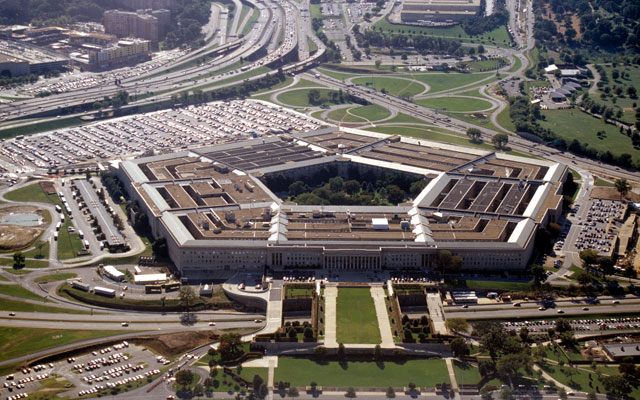Sequestration Will Make the U.S. Less Safe, Despite CATO’s Claims to Contrary
Baker Spring /
A February 26 article by CATO Institute Analyst Christopher A. Preble wrongly asserts that the imposition of automatic spending cuts, called sequestration, will not make the U.S. less safe. In fact, these reductions, which come on top of reductions to the defense budget that are already being made, will not only make the U.S. less safe, it will make the world less safe.
This is self-evident in the article by the admission that the cuts will effectively lead to changes in defense strategy and the roles and missions of the U.S. military. In effect, Mr. Preble wants to use the sequestration process to force fundamental changes in U.S. foreign policy that would see the U.S. abandon its position as the global leader in the field of security. This would not only make the world a much more dangerous place for everybody, it would result in a circumstance where the U.S. can no longer control its own destiny in world affairs.
It is also important to examine the article’s selective use of budget data to bolster the argument that sequestration will not damage U.S. security. The first instance of which is the argument that the U.S. is going to spend in the current fiscal year (FY) 2013 more than at the height of the Cold War. Clearly, this is meant to imply that defense spending is the source of the nation’s current economic woes.
This is not the case. Americans can have a defense budget that is higher than the Obama Administration’s current budget proposal, let alone sequestration levels, and still restrain overall federal spending and achieve a balanced budget in 10 years. This was demonstrated by Heritage’s Saving the American Dream plan. Such a defense budget would avoid the indiscriminate cuts required by sequestration, in part, by finding inefficiencies within the defense program and plowing them back into defense initiatives for modernizing weapons and equipment.
While it is true that defense spending will be higher in current-dollar terms than it was in 1985, the defense budget in 1985 was 6.1 percent of gross domestic product (GDP), while in 2013, prior to sequestration, it is projected to be 4.3 percent of GDP.
Accordingly, the defense budget is not the drag on the economy that the CATO figures imply. Further, the U.S. was not conducting any major military operations in 1985. Today, the military is still in the process of recouping the costs of the war in Iraq and is still engaged in Afghanistan.
Further, the article attempts to hide the scope of the current defense budget drawdown. It does so by choosing FY 2006 as the starting point. In fact, the peak of the post-9/11 defense spending was in FY 2010. Regarding the comparison with 2006, it is unclear why this year was chosen. In 2010, the defense budget was $721.3 billion. The FY 2013 number, by comparison, is projected to be $647.4 billion—and this is prior to the application of sequestration. Thus, the defense budget, absent sequestration, is already on the path to a 10 percent reduction in current-dollar terms.
Finally, the article resorts to the often-used and misleading comparison of U.S. defense spending to that of other specified countries. This is simply a non sequitur. No other nation has the global security responsibilities of the U.S.
Like it or not, these responsibilities have been embedded in U.S. foreign policy, on a consensus basis, for decades. This consensus is based on the recognition that U.S. fulfillment of these security responsibilities is necessary to maintain U.S. global leadership and for the U.S. to control its own destiny in a dangerous world, as opposed to depending on others for its security.
The direct benefit of this position of military strength and global leadership to the security of the American people is obvious. It allows the U.S. government to counter those that seek to harm America well away from American shores. Since World War II, it has been a very rare occurrence that American territory has been part of a war zone. The combined attacks of September 11 was one such occurrence. The American people, for very good reason, did not like it and do not want it to happen again. A war zone is a terrible place to live.

